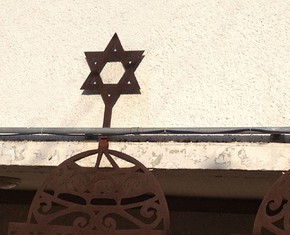The views expressed in our content reflect individual perspectives and do not represent the authoritative views of the Baha'i Faith.
Recently someone I know of visited a Baha’i Centre in a large Canadian city, came away feeling she was discouraged from asking questions, and wondered if that was normal.
I haven’t been to that Bahá’í Centre, so I wasn’t familiar with the people there or why she might have had that experience. I went away and reflected on her question, because it troubled me. This is what I came up with.
First of all, the concept of the independent investigation of truth is enshrined in the Baha’i Faith as one of its most important principles. Baha’is have no clergy, so all Baha’is read the Baha’i writings for themselves and come to their own conclusions. In addition, discussion groups, home visits, Baha’i introductory meetings called firesides, study groups called deepenings, or organized study circles give people an opportunity to study and learn together in every Baha’i community. Questions are always welcome in all of these venues.
RELATED: Emmy-Winning Rainn Wilson, Tackles Life’s Big Questions
Baha’u’llah, the prophet and founder of the Baha’i Faith, said this about questions: “Go thou to the people and tell them: ‘Ask whatsoever ye please.’”
Baha’u’llah loved questions so much that he named a whole Baha’i month “Questions.” That 19-day month starts every year on the evening of 11 December. This suggests that questioning has an important role to play in the Baha’i Faith.
Abdu’l-Baha, Baha’u’llah’s son and successor, wrote a book called Some Answered Questions, which has become one of the core books in the Faith.
We can’t learn without curiosity, and our curiosity naturally causes us to ask questions. We are fortunate in this Faith, for the first time in religious history, to have access to hundreds of thousands of original tablets and letters, epistles, and books written by the Bab, Baha’u’llah, and Abdu’l-Baha. All of that authentic core literature is available to everyone in the online Baha’i Reference Library.
Since the advent of the Baha’i Faith, Baha’i authors have also written thousands of books about the Faith, its history, and its principles, so the range and scope of Baha’i literature covers just about every imaginable question.
All of this means that Baha’is have a culture of learning. In fact, we’re asked to have a humble posture towards learning in every human endeavor. The Baha’i teachings urge everyone to let go of the traditions of our forefathers and prepare to ask questions that will allow us to learn a new way of life, based on the prescriptions of God for the needs of this day, as given to us directly from Baha’u’llah and his successors.
RELATED: How Our Questions Propel the Search after Truth
Baha’u’llah tells us first:
The heart must needs therefore be cleansed from the idle sayings of men, and sanctified from every earthly affection, so that it may discover the hidden meaning of divine inspiration, and become the treasury of the mysteries of divine knowledge.
To the extent that we’re able to use the testimony of God, as viewed through the eyes of His appointed messengers, as the standard to assess everything we know, the more we are able to align ourselves with the Will of God, advance His teachings, and avoid falling into the whisperings of egotism and selfish desire.
To get back to my friend’s question: This Canadian city she visited is one of the largest and most active Baha’i communities in the country, with more than 100 ongoing core activities, engaging more than a thousand people. It didn’t get that way by people not asking questions! It’s entirely possible that one of those people, new to the Faith and unfamiliar with many of its tenets, was a volunteer at the Baha’i Centre that day. We can’t judge a religion by the limitations of the people who practice it – and Baha’is, as well as those exploring the Baha’i teachings, can definitely ask all the questions we want. And I am grateful.
















Comments
Sign in or create an account
Continue with Googleor